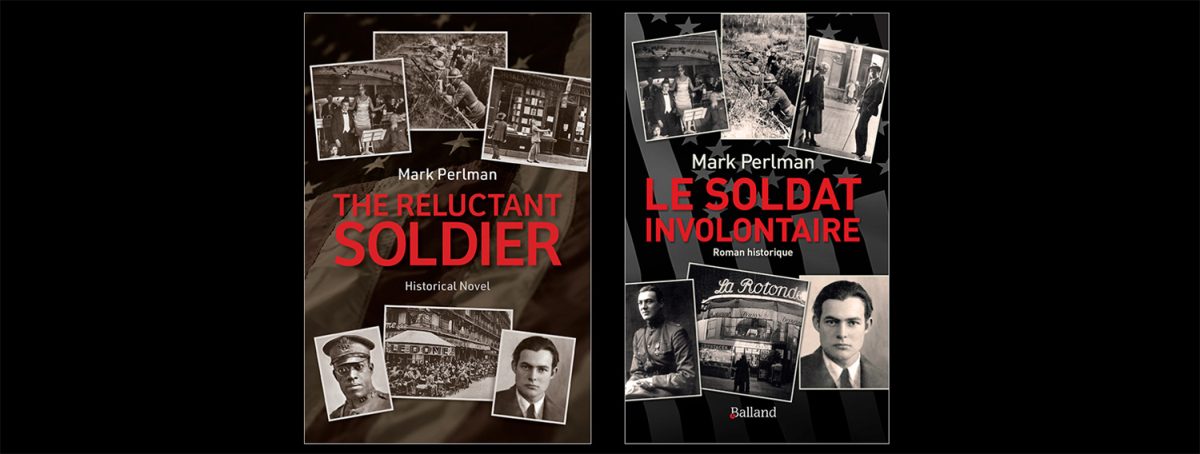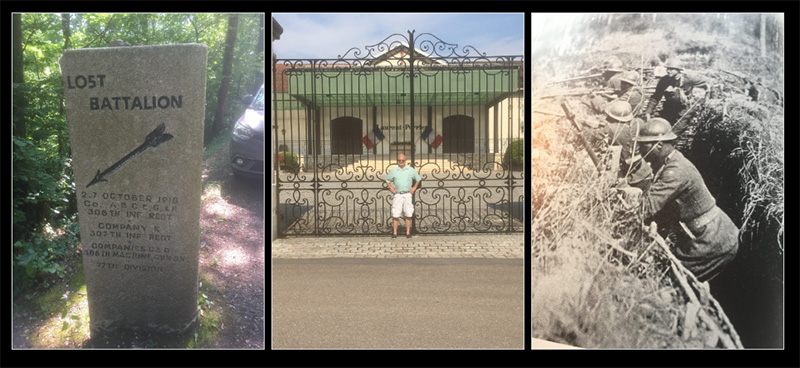The Journey of The Reluctant Soldier
In 2018 I was working as a writer and editor in New York when I was contacted by author Mark Perlman. He had written an historical novel that had taken him years to research and included several trips to France. Mark wanted the book edited before submitting it to agents. He drove from his home in Connecticut to meet me at a local restaurant near my house about an hour north of the city. We connected and I signed an agreement to edit Mark’s manuscript. It took a few years and several rewrites before Castles of Corn was ready to seek representation. When that time came, what Mark and I discovered in seeking an agent or publisher took us both by surprise. But first let me tell you a bit about the storyline.

The Reluctant Soldier blends historical facts and characters with fictional ones. The story takes place in both France and the United States. Its themes of segregation, historical incidents, tragedies, and personal triumphs will resonate with readers on multiple levels. Virgil Lincoln Carpenter, a black man, and the main character, undergoes various transformations in his life from growing up in Virginia and Jim Crow South, to teaching in New York City, and living in France on several different occasions. He is caught up in two world wars, experiences challenges and losses, and befriends many literary and artistic luminaries during the heady interwar years in Paris. He meets Ernest Hemingway, Gertrude Stein, James Joyce, Sylvia Beach, Eugene Bullard, and Josephine Baker, to name a few. It’s an extremely rich documentation on black Americans in the 369th Infantry Regiment—the Harlem Hellfighters—who fought valiantly for their country that denied them equality at home. War, the jazz years, criminal cases, romance, and a murder trial are all part of the incredible adventure of Virgil's life and the legacy and wisdom he leaves to his nephew whose narration opens and closes the story. The book addresses many issues that are just as relevant today as they’ve been for decades. Mark has woven fact and fiction together expertly, supported by meticulous research. His passion for history and truth has taken him to the battle fields and cemeteries of France, where he gained the cooperation of many French officials who gave him access to records and information critical to the veracity of the story.
But what happened when we approached US publishers and agents? They liked the book but turned it down. Mark was even offered a contract from a publisher at one point. It fell through. Why? Because the main character is black, and Mark is white. There were many characters in the book of various ethnicities. This didn’t make sense to me. I am a writer, white and female. Did this mean I couldn’t write a book about any characters that weren’t white and female? It’s true that the publishing industry has ignored or marginalized minority groups for decades. But did that mean a reverse prejudice would create a course correction? Wouldn’t a
book that brought these important and neglected issues to light only be an enlightenment for everyone? Did publishing Mark’s book mean he was edging out an author of color from the marketplace? It all seemed rather absurd and incredulous. It appeared evident to me that publishing a good work was more important than trying to be politically correct. A book should be published on its merits and not the color of its author. Nevertheless, there we were.
On New Year’s Eve 2018, our family boarded a plane for France and moved permanently. Erosion of a supportive social net, political and financial concerns, caused us to consider our options to stay or leave the United States. It came down to an overall moral decision and we left. Eventually, we settled in the beautiful Burgundy region of France and made our home here, a decision we’ve never regretted. I suggested to Mark that he might try to submit the book to French publishers. France was always a welcome haven to black artists from the US. As one example, Josephine Baker became a national treasure and enjoyed freedom in France that she could never experience in America. She’s the first black woman to be buried at the Panthéon in Paris.
A neighbor of Mark’s who grew up in Paris but moved to America several decades earlier suggested a publisher, Èditions Balland located in Paris. They agreed to publish the book. Mark’s neighbor completed the translation. Virgil Carpenter’s “castles of corn” where he’d seek solace and dream in the cornfields of his family’s farm was retitled Le Soldat Involontaire. It was published in French in 2022 under the new title and made available throughout Europe. Mark secured a contract with Amazon this same year to publish the book in English under the title The Reluctant Soldier.
Reader reviews have been glowing. Here’s one example: “The story is not only entertaining but historically factual. I appreciated the storytelling in which you learn about the complexity of Virgil’s life and a glimpse into life during multiple time periods & locations…the South shortly after the reconstruction era, New York in the early 1900s and Paris during the roaring ’20s/ Jazz era. Through Virgil’s experiences, we see firsthand the devastating effects of prejudice and discrimination. The book also touches on themes of bravery, friendship, and the human cost of war.” Mark has no less than ten speaking engagements in the next three months and has been asked to write an article for the World War One Historical Association.
The book is available in both French and English. The Reluctant Soldier is age appropriate for adolescents through adults. It is also an excellent tool for those studying French as well as for book clubs, schools, and groups. Bookstores can purchase the book or arrange for consignment. Discounts are available for larger orders. You can visit the book’s website at www.thereluctantsoldier.com. If you order directly from the site, you’ll receive a signed copy by the author. Also available on Amazon US and in France.
Karen Corinne Herceg, who wrote this article as well as edited the book, is a graduate of Columbia University, New York. She publishes poetry, prose, essays and reviews in various international magazines and literary journals. Her website is: www.karencorinneherceg.com.
Please let BRbookroom@gmail.com know if a zoom meeting with the author would be of interest to you.

Here’s a synopsis of the book in French from the Editions Balland.
Le soldat involontaire
Mark Perlman est diplômé de la Northeastern University, Boston. Il est membre de l’Association historique de la Première Guerre mondiale.
MINORITES NOIRES SEGREGATION ENTRE-DEUX GUERRES
Alors qu’il enseigne dans un collège de New York, Virgile devient un combattant involontaire pendant la Première Guerre mondiale et rejoint le fameux régiment noir des Harlem Hellfighters. Il participe aux plus grands évènements du XXe siècle sur les deux continents rencontrant des expatriés américains célèbres comme Joséphine Baker, Ernest Hemingway, Eugene Bullard et Sylvia Beach pendant l’entre-deux guerres. Lorsque la Seconde Guerre mondiale éclate, il est recruté par la Résistance française. Une documentation extrêmement riche sur les noirs américains dans l’armée, sur l’histoire du régiment dont faisait partie le personnage principal, les deux guerres mondiales, l’entre-deux guerres à Paris, l’introduction du jazz en France, les figures célèbres de l’époque, la vie des noirs américains à Paris, la résistance française et les années d’après-guerre. La ségrégation raciale et le préjudice auxquels sont confrontés les noirs américains font partie intégrale de l’histoire américaine. Ce roman aborde cet héritage historique difficile alors que les questions sur difficultés des minorités noires à être acceptées et valorisées sont couramment d’actualité.


